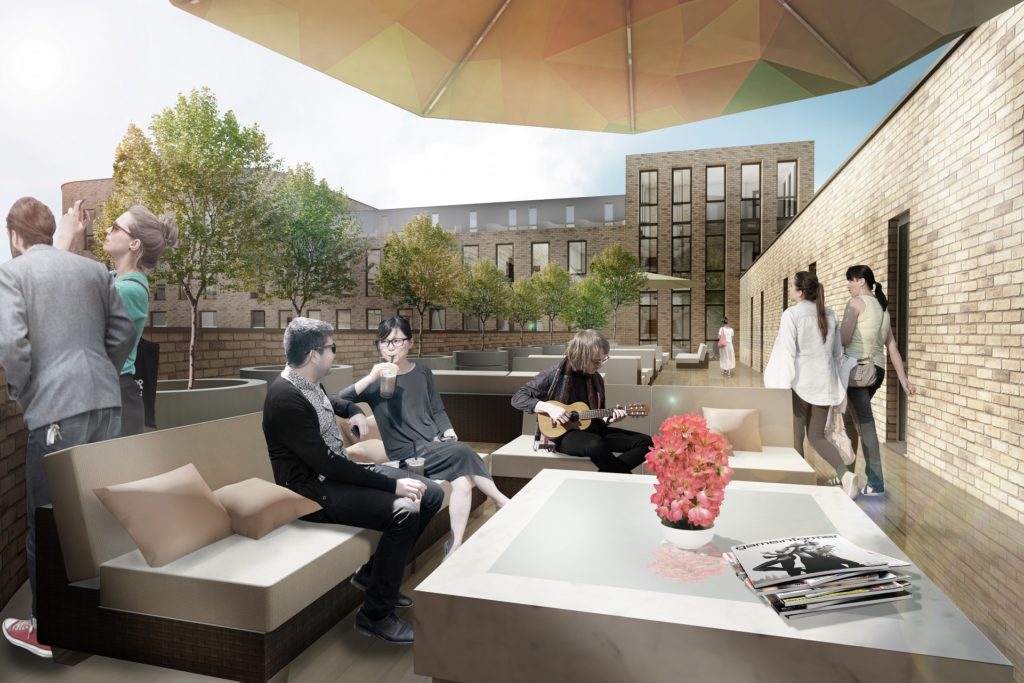In our latest look at the property market, we look at how a different generational outlook changing the UK housing market and leading to new opportunities for developers and property investors.
For the baby boomer generation, success was defined by developing a good career, getting married and owning your own home. Times have changed and so have the priorities young people once held dear.
More people from the millennial generation, usually defined as those born between 1980 and 2000, are prioritising university educations and are therefore entering the workforce much later than their parents and grandparents.
This also means many are choosing to live in major cities where their employment prospects when they do graduate are greater and where the cultural and leisure offering is stronger.
All of this is leading to a decline in traditional home ownership and renting models and the emergence of new ways of living.
The rise of modern co-living developments
Millennials now make up more of the population in urban areas than any other demographic and research by PwC shows they will make up 50 per cent of the workforce by next year. However, rising property prices have made home ownership almost impossible for many young people.
One growing trend is house sharing or co-living. And this is not the student house sharing model of old, one borne out of necessity with a handful of students sharing a dilapidated five-bedroom home using the same bathroom and kitchen.
It is people choosing to live longer term with friends and work colleagues in purpose-built co-living developments or houses. This is happening both at the luxury end of the market with private developers designing high-end Homes for Multiple Occupation (HMOs) schemes and at the affordable end with registered housing providers developing flexible homes based on people sharing the cost of living.
Mirroring the co-working model
Go back even just 10 years and the thought of lots of different companies working in the same space without their own doors and walls was unthinkable for many businesses.
Now it’s becoming the norm, not just for young tech start-ups but even established businesses looking to open in new territories.
Millennials in the big cities are more used to this communal philosophy and are therefore embracing this model in their home lives too. With many young people leading busier lives than ever before, both at work and socially, and travelling more, owning and maintaining a home has become far less of a priority.

Developers are now applying coworking principles to the housing market
Co-living is also thought to be growing in popularity due to it offering a way for young people to socialise in the comfort of their own home and avoid feelings of loneliness and isolation linked to our use of modern technology and social media.
A booming private rented sector
The private rented sector has also changed markedly in the last few years due to the preference among many young people for living in cities with a strong night time economy and leisure offer.
Institutional investors are now making the PRS or ‘build to rent’ model work outside the capital with cities like Manchester, Birmingham, Leeds and Sheffield all building out successful PRS developments.
The benefits of this model to investors and renters are clear. Investors can get greater rental returns due to the quality of the homes on offer with their higher specification and communal facilities.
Meanwhile, renters benefit from living in a block that is well-maintained by a single landlord and is on the doorstep of a thriving employment, cultural and leisure offering.
The changing face of student living development
As we’ve touched on above, the requirements of modern student populations have also changed.
Far greater student numbers mean more pressure on developers to come up with purpose-built student accommodation (PBSA) that people desire to live in and where students can thrive.

Millennials have changed expectations of what student accommodation should look like
The influx of wealthier overseas students also means the quality of the student housing offering has to be far greater than before. That means more space, quality fixtures and fittings, better communal areas, and a strong building management offering.
The thirst for technology and access to good wireless internet connections for gaming and social media means many students want to live in a facility where all this is taken care of.
What does this mean for investors and developers?
While there will always be demand for traditional accommodation, especially for families, there is no doubt that the new generation are challenging those housing and rental structures of previous decades.
With this population growing quickly, especially in the big cities, developers and their professional teams must find ways to appeal to this generation now but also future-proof their developments through a flexible approach.
Only by generating this demand can developers create a compelling offer for investors, whether that’s institutional investors and funders or high-net-worth property investors.
Fraser Morgan specialises in the development of city centre residential and student living projects. We are able to offer these developments on either a land only basis, or as a turnkey investment. For more information, contact Mark Robinson.

